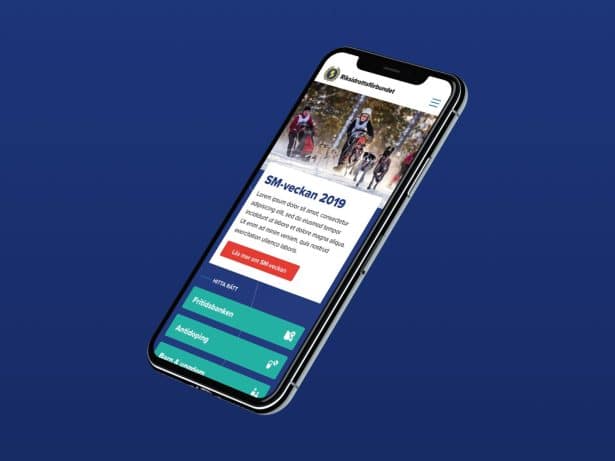SEO isn’t just about showing up – it’s about showing up for the right people, in the right way, at the right time.
A thorough SEO audit is like a health check for your website: it tells you what’s working, what needs fixing, and where the untapped potential lies.
At Mild, we do this every day for our clients – and we know that a well-executed SEO audit can become your roadmap to climbing the search results.
Here, our SEO specialist Jens shares his top tips for analyzing, optimizing, and unlocking your website’s true potential.
Let’s dive in 👇
🔍 1. Start with the technicals – is everything working under the hood?
If Google can’t crawl your site properly, it doesn’t matter how good your content is.
Before we optimize, we need to check your site’s current health.
- Page speed – faster pages rank better and convert more. Use Google PageSpeed Insights.
- Mobile-friendliness – most users browse from their phones. Is your site responsive and easy to navigate?
- HTTPS & security – if your site still runs on HTTP, it’s time to upgrade. Google prioritizes secure websites – and so do your visitors.
💡 Jens’ tip: "The first thing I check is crawlability. If Google can’t navigate your site – maybe due to bad settings or a missing sitemap – you’re holding yourself back without even knowing it. A technical audit is like lifting the hood of a car: make sure everything runs smoothly before hitting the gas."
📄 2. Time for on-page SEO
Think of backlinks as the web’s version of recommendations. The more relevant, high-quality links you have, the more authority your site builds.
- Title tags & meta descriptions – make sure they’re unique, engaging, and optimized for the right keywords.
- Header structure (H1, H2, H3) – a clear hierarchy helps both readers and Google scan your content faster.
- Internal linking – use links to guide visitors (and Google) toward your most important pages.
🚀 Reminder: Google loves valuable content. Write for people first – then optimize for search engines.
🔗 3. Build authority – off-page SEO
Think of backlinks as the web’s version of recommendations. The more relevant, high-quality links you have, the more authority your site builds.
- Check your backlinks – who’s linking to you? Are they credible and relevant?
- Watch for toxic links – low-quality or spammy backlinks can hurt your rankings. Use Google Search Console.
- Spy on your competitors – where are they getting their best links from, and can you do something similar?
💡 Jens’ tip: "It’s not about the number of backlinks – it’s about relevance and quality. One great link from the right site can be worth more than a hundred weak ones. Focus on relationships, not just link building. That’s how you grow real authority."
🎯 4. Keyword analysis – are you reaching the right target audience?
What are your customers actually searching for – and does your site reflect that?
Keyword research helps you attract the right traffic, not just more traffic.
- What keywords are you already ranking for? Are there quick wins you can optimize further?
- What are you missing? Analyze search trends and competitors to spot gaps. Look for keywords with high volume and low competition – that’s where the gold is.
- Search intent – does your content match what the user is actually looking for? Is your page a guide, a product, or a signpost?
🔍 5. Competitor analysis – what can you learn?
SEO is a competition. To move up the SERPs, you need to know what your competitors are doing – and do it better.
- Which keywords are they ranking for? Can you create better content and outrank them?
- What does their content look like? Length, structure, frequency – it all matters.
- How strong is their backlink profile? Can you earn similar links?
💡Jens’ tip: "Competitor analysis is like peeking at the answer sheet. Learn what works in your industry by looking at who’s succeeding – and then outdo them. Don’t just copy. Do it better, smarter, and more relevant to your audience."
📊 6. User experience & content – is your site easy to use?
Google wants visitors to have a great experience – and so should you.
A smooth UX doesn’t just improve rankings, it increases conversions too.
- Is the navigation clear and logical?
- Is your content easy to read and accessible?
- Are your CTAs (calls to action) in the right places?
🛠 Pro tip: Check your session duration and bounce rates in Google Analytics – they’ll tell you a lot about how users experience your site.
📋 7. Report & action plan – what’s next?
A proper SEO audit gives you a clear view of what needs to be done – so you can take action immediately.
We always deliver a prioritized action plan based on:
- Quick wins – what can move the needle right now?
- Long-term improvements – what takes time, but pays off in the long run?
- Resource-heavy fixes – what requires planning and extra effort?
Ready to run a full SEO audit?
Analyzing and optimizing a site is an ongoing process – but with a solid audit in hand, you’re setting yourself up for long-term success.
Want help taking your SEO to the next level? At Mild, we love talking search strategy over a good cup of coffee. ☕
Let us know when you're ready – we’ll bring the insights.


